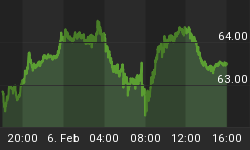
FRA Co-Founder Gordon T. Long interviews Brett Rentmeester on Austrian economics and the importance of having an entrepreneurial mindset in investment. Brent Rentmeester is the president of Windrock Wealth Management and has been in the wealth asset management for over 18years. Mr Rentmeester believes the uniqueness of Windrock is its focus on the macroeconomic picture, Austrian economics and what it all means for investment implications as well as an entrepreneurial mindset on how to find investment opportunities.
The Austrian school to him is the "acknowledgement of the influence that central banks have on the business cycle and interest rate and therefore the opportunities left for investment."
He mentions that the traditional stock, bond portfolio is under a lot of challenge going forward because there is no real and safe income anywhere today. As a result people are becoming speculators and risk takers even when they don't want to.
Brett believes having an entrepreneur mindset when investing, is the key to addressing the dilemma of income and the future of investment. Secure private lending is lending money to borrowers that is backed by real tangible assets or an income stream. According to him, what makes this a unique category is that it addresses the pockets of lending that is being neglected by the big banks as a result of the financial banking distress that took place in 2008.
On examples of secure private lending, Brett highlights 3 different categories with his examples. He explains that in auctioned rental properties, the government organizations Fannie Mae and Freddie Mac by law are restricted from buying mortgages on such properties until after 2 years, this results in a niche market for private lenders. "In energy markets more states are moving towards a deregulated market". What this means is that a consumer can buy energy from a variety of energy companies. Now this system is facilitated by third party brokers who go door to door offering this energy from various energy companies. Now because the brokers want the commissions up front and the energy companies can't provide it, we see people coming in to pay the brokers a discounted fee upfront and then agree to collect the 3year contract provided by the energy companies.
Trade financing
"Global trade happens between different parties but often times it's financed by big banks, trade receivables. So one party needs to buy goods and a supplier supplies them but someone's got to finance that transaction and it's often the third party bank."
Due to new regulations, banks are required to reserve more capital in such situations, as a result an opportunity is created for private money to finance the transaction between the customer and supplier.
"Rather than taking on more risk you don't have to today, you just have to be more creative." - Gordon. T. Long.
Brett echoes this sentiment saying:
"So much of the industry and investors think in a very narrow box of stocks, bonds and maybe hedge funds but there's a lot of things outside of that, that if you open your mind to the opportunities, are quite interesting to research".
Abstract written by Chukwuma Uwaga - chuwaga@gmail.com















